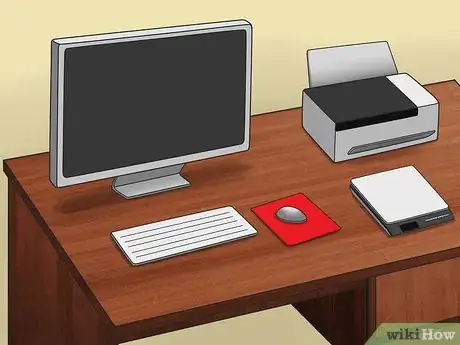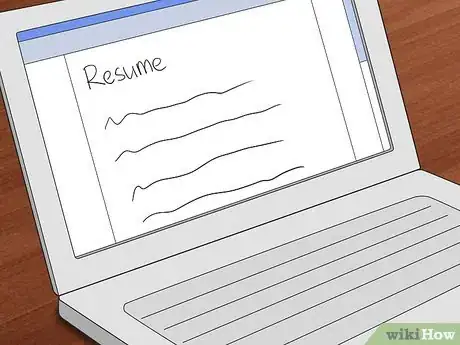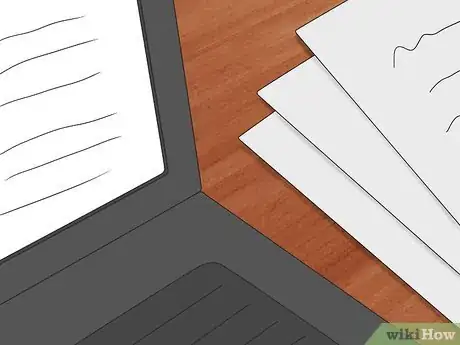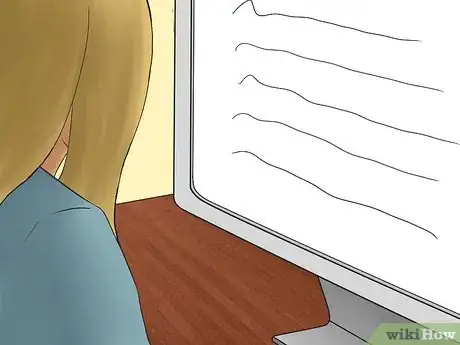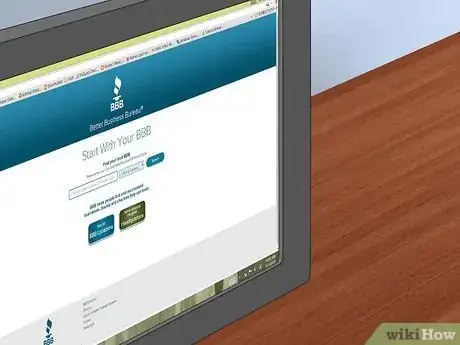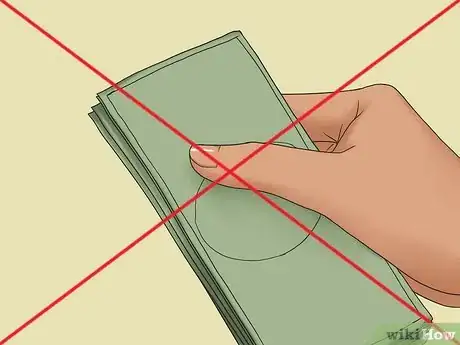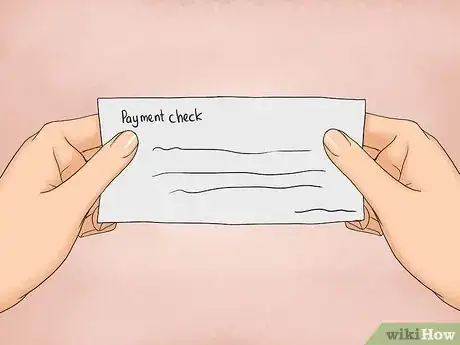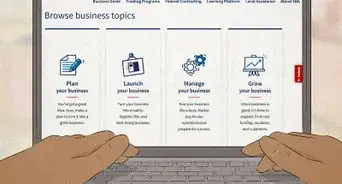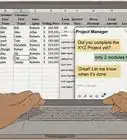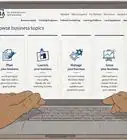This article was co-authored by Alex Kwan. Alex Kwan is a Certified Public Accountant (CPA) and the CEO of Flex Tax and Consulting Group in the San Francisco Bay Area. He has also served as a Vice President for one of the top five Private Equity Firms. With over a decade of experience practicing public accounting, he specializes in client-centered accounting and consulting, R&D tax services, and the small business sector.
There are 14 references cited in this article, which can be found at the bottom of the page.
This article has been viewed 84,212 times.
Ads for envelope stuffing jobs are often scams. Most large companies use machinery to send mail. The "work from home" scam has been so successful that the Federal Trade Commission posts fraud alerts regarding this online job posting. If you are seeking an entry-level position where you can work from home, you should contact local employers first. You can learn how to find legitimate work from home jobs stuffing envelopes, doing data entry and doing research by doing grass roots and online searches.
Steps
Home Office
-
1Set up your home office. You may need a computer, word processing programs, spreadsheet programs, a printer and a postal service scale. However, you do not need expensive models, so the investment should be fairly low.[1]
-
2Create a resume that lists past professional experience and references. Make sure to include telecommuting jobs you have had in the past.[2]Advertisement
-
3Write a cover letter explaining the work-from-home opportunities you are looking for. Explain your flexibility, efficiency and low rates (usually minimum wage).[3]
-
4Drop off or send your resume to businesses, printers, newspapers and any other agencies that do regular mailings.
Local Work
-
1Follow up by calling these businesses to inquire if they have any occasional data entry or mailing needs. Reiterate that you are flexible, efficient and have plenty of references.
-
2Contact non-profit agencies in your state. These organizations often use volunteers to stuff envelopes, but they may be willing to hire someone at a low rate to work with their donor list.[4]
-
3Network with business people in your community. Let them know that you are looking for work-from-home contracts. People are more likely to refer their friends and contacts than post in the paper, especially for occasional work.
-
4Increase your search before Thanksgiving and Christmas. More organizations are likely to hire seasonal work during their year-end sales and donation drives.
Online Work
-
1Expand your search for jobs. Although envelope stuffing is seen as a good work from home option, you are more likely to find entry-level work at home jobs working on a computer, writing blogs, mining information or writing reviews. Apply for any legitimate job for which you have qualifications to ensure your success.
-
2Do a daily search of your local Craigslist board. Focus on the admin, etc. and part-time postings. Always vet each job according to the guidelines listed in the next section.
-
3Search legitimate work-at-home websites.[5] The following are good places to start:
- Work at Home Moms, wahm.com/jobs.html, posts jobs daily that include data mining, blogging, website reviewing and mailing.
- Review listings at oDesk.com. This popular job search website lists more telecommuting jobs than Monster.com or CareerBuilder. You will need to sign up for an account to access most of the jobs and apply.
- Use FreelanceJobOpenings.com to search listings. Many of the extremely low paying jobs are filtered out.
- Sign up for guru.com or elance.com when you feel you are prepared to bid on work from home jobs. This marketplace allows businesses to post their job and freelancers to bid what they would like to get paid for doing it. Wait until you have a good amount of experience working with clients and meeting deadlines before you start to bid for work.
Evaluate Jobs
-
1Search for each company that wants to employ you on the Better Business Bureau website. You should be able to see what their business rating is and start to evaluate whether or not they are a scam.[6]
-
2Do not send money to any job, in order to get started working. Refrain from giving personal details other than your name, email address and phone number until you are sure that they are legitimate.[7]
-
3Search online using the company name. If they have scammed other people, a quick search query should allow you to see what they have done to others.[8]
-
4Ask for a job description and payment details. You should be able to clarify what you will be doing, how you will be doing it and the deadline to turn in your assignment and get paid.
-
5Make sure your first payment is in check form. After that, the company may ask you to send Electronic Funds Transfer (EFT) information so that they can do a direct deposit; however, you should not do this immediately.
-
6Do not apply for jobs that look too good to be true. They are not legitimate. People who stuff envelopes or do data entry should expect a low paying position with some flexibility.[9]
Direct Mail Service
-
1Consider becoming a direct mail service in your region. These businesses handle mailing lists, remove duplicates, check addresses according to the postal service change of address list and more.
-
2Start your own business, including a name that identifies you as a mailing services company.[10]
-
3Invest in computer classes, computer and printing equipment and mailing supplies.[11]
-
4Advertise online, in print and with local businesses. Set your rates according to competitors or by evaluating a reasonable profit margin after the cost of goods sold.[12]
-
5Learn the different rates for postal service mailings, including bulk and first class. Become an expert on all things mailing.
-
6Create partnerships with local printers. The next time they are printing something and the client wants it to be mailed, they can come to you to stuff and send it.
References
- ↑ https://www.entrepreneur.com/article/202566
- ↑ https://www.monster.com/career-advice/article/five-steps-for-updating-your-resume-hot-jobs
- ↑ https://www.glassdoor.com/blog/guide/how-to-write-a-cover-letter/
- ↑ https://www.consumer.ftc.gov/articles/0112-envelope-stuffing-schemes
- ↑ https://www.thepennyhoarder.com/make-money/sites-to-find-work-from-home-jobs/
- ↑ https://www.bbb.org/search
- ↑ https://www.glassdoor.com/blog/work-from-home-scams/
- ↑ https://www.monster.com/career-advice/article/avoid-work-from-home-job-scams
- ↑ https://www.glassdoor.com/blog/work-from-home-scams/
- ↑ https://bizfluent.com/how-7227452-start-direct-mail-business.html
- ↑ https://www.entrepreneur.com/businessideas/direct-mail-service
- ↑ https://www.sba.gov/blog/direct-mail-hot-again-heres-how-use-it
- http://www.consumer.ftc.gov/articles/0112-envelope-stuffing-schemes
- http://www.wahm.com/jobs.html
- http://www.bankrate.com/finance/personal-finance/10-best-and-real-work-at-home-jobs-3.aspx
